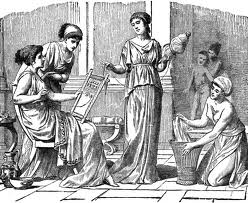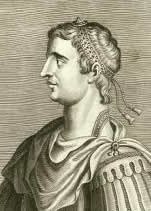Such attitudes to commercial activities have long antecedents in human history. In ancient Greece, the acquisition of wealth  was distrusted and the only good purpose of wealth was thought to be to free a person from work and to become self-sufficient. Aristotle condemned “the piling up of superfluous fortunes” and in The Laws Plato assigned industry, trade and business activities to migrants. None of this was fit for the ideal Greek citizen to undertake: “The idea that trade and marketing was incompatible with whole-hearted participation in social and political life was deeply rooted.”
was distrusted and the only good purpose of wealth was thought to be to free a person from work and to become self-sufficient. Aristotle condemned “the piling up of superfluous fortunes” and in The Laws Plato assigned industry, trade and business activities to migrants. None of this was fit for the ideal Greek citizen to undertake: “The idea that trade and marketing was incompatible with whole-hearted participation in social and political life was deeply rooted.”
 In his history of Roman Civilisation, Will Durant argues that the Romans were somewhat hypocritical in their attitude to money: “Nearly everybody in Rome worshipped money with mad pursuit, and all but the bankers denounced it.” Whilst having money was desirable, trade and money lending were considered the lowest of occupations and money made in this way as the least prestigious. Land was the most respected form of wealth and without ownership of land citizens were held to be inferior. No matter how much money a person made, if they were not born into the aristocracy then they were not granted high status by the elite of Roman society. Cicero argued that the wise man would only seek fortunes in order to exercise virtues such as generosity.
In his history of Roman Civilisation, Will Durant argues that the Romans were somewhat hypocritical in their attitude to money: “Nearly everybody in Rome worshipped money with mad pursuit, and all but the bankers denounced it.” Whilst having money was desirable, trade and money lending were considered the lowest of occupations and money made in this way as the least prestigious. Land was the most respected form of wealth and without ownership of land citizens were held to be inferior. No matter how much money a person made, if they were not born into the aristocracy then they were not granted high status by the elite of Roman society. Cicero argued that the wise man would only seek fortunes in order to exercise virtues such as generosity.
The Senatorial class were forbidden to invest in commerce or industry and none of the aristocratic families were directly involved in either manufacturing or trade. However some families used freedmen to invest on their behalf. Nevertheless these men who made money for them were looked down upon. The Senatorial class required money to fulfil their obligations as officials in unpaid public posts. For them money was very much a means to an end and they “upheld rule by birth” over rule by money.
 In the third century the Roman emperor Gratian (pictured) proclaimed that a man who bought merchandise “in order that he may gain by selling it again unchanged and as he bought it, that man is of the buyers and sellers who are cast forth from God’s Temple”. Six century’s later Charlemagne issued a capitulary which stated: “Those who by various manoeuvres dishonestly plan to amass goods of all kinds with the express aim of making money are acquiring ill-gotten gains”
In the third century the Roman emperor Gratian (pictured) proclaimed that a man who bought merchandise “in order that he may gain by selling it again unchanged and as he bought it, that man is of the buyers and sellers who are cast forth from God’s Temple”. Six century’s later Charlemagne issued a capitulary which stated: “Those who by various manoeuvres dishonestly plan to amass goods of all kinds with the express aim of making money are acquiring ill-gotten gains”